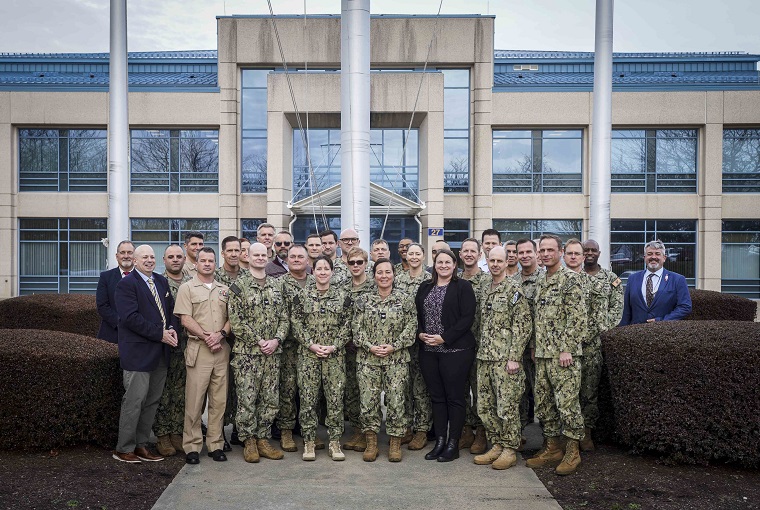Leaders Graduate from NWC’s Winter Executive Level Operational Warfare Course

NEWPORT, RI – The U.S. Naval War College’s (NWC) College of Maritime Operational Warfare (CMOW) hosted its one-week Executive Level Operational Level of Warfare Course (ELOC), a series focused on improving the warfighting capabilities of U.S. Navy Maritime Operations Centers (MOCs), aboard Naval Station Newport, Dec. 9-13.
ELOC brought together 30 active duty and reserve component officers from naval commands, as well as government civilians from DoD, Department of State, and the U.S. Agency for International Development for the purpose of training and education in the theory and execution of the operational level of war. Course participants included senior naval officers representing eight numbered fleet headquarters as well as other commands and organizations.
“While successful Navy Commanders and Captains tend to be exceptional tacticians and unit leaders, many have little experience and practical education in planning, working across service or functional components, or working with partner nations and Joint headquarters,” said ret. Rear Adm. Edward B. Cashman, dean of CMOW. “ELOC is designed to assist and prepare those individuals going to critical staff leadership positions at Navy Headquarters and Maritime Operations Centers.”
ELOC supports the Navy by improving the capability of its operations centers to lead maritime, Joint and multinational forces while also focusing on how maritime staffs translate a commander’s plan into orders and direction given to the tactical commanders in operational environments. The course also offers classified discussions with current numbered fleet commanders, enabling critical insights into today’s global security challenges.
Another focus for ELOC is the role of staff principals in the Navy Planning Process (NPP). The course offers MOC directors and other executive-level staff leaders additional insights into effective processes for their operational planning and crisis action teams.
"I'm a firm believer that our military's people, especially our leaders, are our competitive advantage over potential adversaries,” said ret. Vice Adm. Gardner Howe III, College of Maritime Operational Warfare (CMOW) professor and ELOC lead facilitator. “Professional development opportunities, like ELOC, are a key component of keeping that advantage.”
Capt. Adria Schneck, commanding officer of Naval Information Forces Reserve Readiness Center, Jacksonville, provided feedback on how the course would assist with her leadership duties.
“Fighting an information-centric fight from the MOC demands combat ready Information Warfare (IW) forces. This includes the reserves,” Schneck responded. “Increasing my knowledge of the operational level of warfare through ELOC allows for more effective investment in MOC reserve capacity and ensures units under my purview are properly manned, trained, and equipped across all MOC functions.”
Schneck added that proper manning of reserve support to MOCs is “absolutely key to expanding our information and decision advantage and retaining the initiative during crisis or conflict.”
ELOC lasts for one week and is offered three times per year in the spring, summer, and winter. This is designed to allow students to attend classes before or on the way to MOC and fleet staff assignments.
ELOC supports the Chief of Naval Operations (CNO) Navigation Plan 2024 (NAVPLAN 2024) by investing in warfighter competency and resourcing fleet staffs with trained personnel ready to fight from the MOC.
“By focusing on the CNO’s priorities set forth in her 2024 Navigation Plan, ELOC offers participants the opportunity to fully understand MOC processes and better coach and mentor their planning teams,” said Heath “Hank” J. Brightman, Ed.D., ELOC director and CMOW professor. “These activities will prove essential in a Joint fight focused at the operational level of war.”
CMOW also offers special programs for international navies and civilians that focus on collaboration during times of global need.
CMOW courses aim to improve the capability of Navy commanders to lead maritime, Joint and multinational forces as well as improve the capability of Navy staff members to plan, execute assess and function cohesively as a MOC.
Established in 1884, NWC is the oldest institution of its kind in the world. The college delivers excellence in education, research and outreach, informing today’s decision makers, educating tomorrow’s leaders and engaging partners and allies on all matters of naval power in order to preserve the peace, respond in crisis and win decisively in war.
